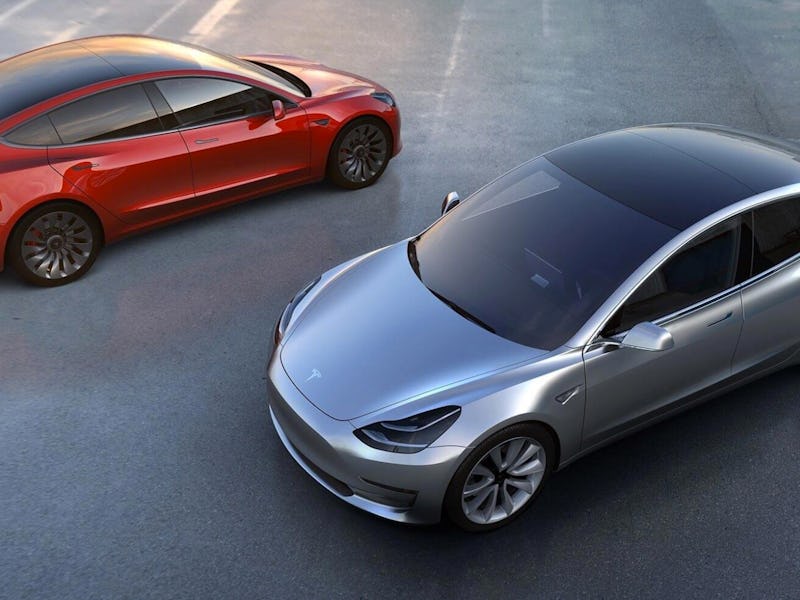Tesla’s use of aluminum means that its cars and batteries could last for 20 years, a battery researcher working with the company has claimed. Jeff Dahn at Dalhousie University worked with Tesla to improve the lifespan of its batteries, and in a lecture given at the Massachusetts Institute of Technology last week, he claimed that his team doubled the cells’ overall life four years ahead of the project’s scheduled end. These cells are not currently in Tesla’s products, but that could be set to change.
His comments were recorded in a now-unavailable YouTube video (which Electrek reported about on Tuesday).
It’s an incredible breakthrough and one that could have a major impact on the Model 3, set to enter production in July. The $35,000 car will be the cheapest the company has ever produced, and it will bring the company to a mass audience. Tesla is set to increase total car production fivefold, reaching 500,000 cars produced annually by the end of 2018. Chamath Palihapitiya, founder of Social Capital LP, believes the Model 3 will produce an iPhone-like boom in sales, but those new consumers won’t stick around unless the car lasts for a long time.
Dahn’s team has three goals in its research partnership with Tesla: lower the cost of batteries, increase their lifespan, and increase energy densities. In many ways, the three are closely linked. An increase in energy density, for example, could help reduce costs.
The team created a method for testing battery longevity that identifies which chemical changes could cause the cells to degrade over time. Through this system, the team identified an aluminum coating that showed barely any degradation.
“I wrote down a goal of double the lifetime of the cells used in the Tesla products, at the same upper cutoff voltage,” Dahn said. “We exceeded that in round one. So that was the goal of the project, already been exceeded. We’re not gonna stop, obviously. We have another four years to go, so we’re gonna go as far as we can.”
Dahn’s research focused on the Nickel Manganese Cobalt Oxide cells used in the Powerpacks aimed at storing electricity in the home, but he said that his team also worked on the Nickel Cobalt Aluminum Oxide cells used in the company’s cars.
Unfortunately, Tesla’s work is shrouded in mystery and it’s difficult to ascertain when Dahn’s research may be used in a product. Dahn’s team cut the lecture recording at the point where he explained how Tesla could use this research. However, in February, Dahn said in an interview with the Natural Sciences and Engineering Research Council of Canada that he was “quite confident” that the team’s research would be “incorporated in [Tesla’s] products.”
With Dahn claiming that Tesla’s cars and batteries could last for 20 years, it’s possible that the team’s breakthrough has helped reach this figure.
Watch the February interview with Dahn here:
Update 3/15: This article has been updated to clarify that Dahn’s research is not currently being used in any shipping Tesla products.
